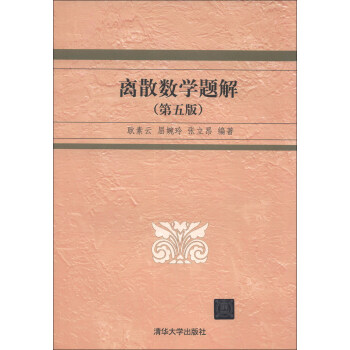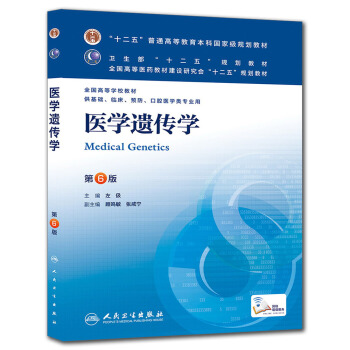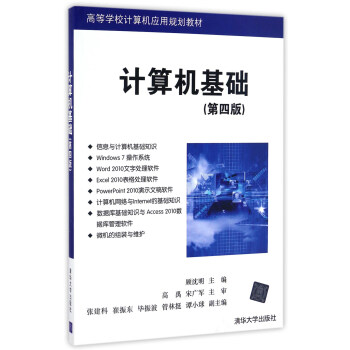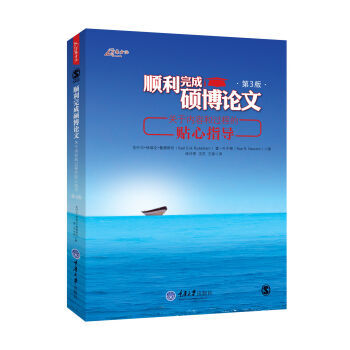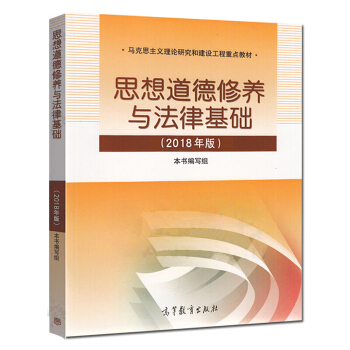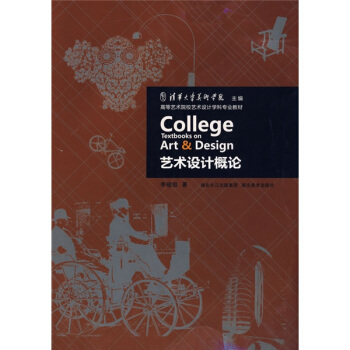![经济学原理(第6版)/清华经济学系列英文版教材 [Principles of Economics(Sixth Edition)]](https://pic.qciss.net/12191058/592e8ae4N61446304.jpg)

具体描述
内容简介
《经济学原理(第6版)/清华经济学系列英文版教材》是一本广受欢迎的经典经济学教材。全书主要从供给与需求、企业行为与产业组织、长期经济增长与短期经济波动、宏观经济政策等角度,深入浅出地讲述经济学的基本思想和基本原理,强调经济学原理的应用与政策分析。书中还提供了新闻摘录、案例研究等,说明经济学原理在现实经济生活中的应用。《经济学原理(第6版)/清华经济学系列英文版教材》为《经济学原理(第6版清华经济学系列英文版教材)》,并附送电子书阅读平台,曼昆教授原汁原味的英文和经济学原理同样具有魅力。
《经济学原理(第6版)/清华经济学系列英文版教材》适用于经济管理类本科生、研究生、MBA学生,以及所有的经济学爱好者。
作者简介
N.格雷戈里·曼昆(N.Gregory Mankiw),哈佛大学经济学教授。作为学生,他曾在普林斯顿大学和麻省理工学院学习经济学;作为教师,他讲授过宏观经济学、微观经济学、统计学和经济学原理。多年前他还在长滩岛当过一个夏季的帆船教练。曼昆教授是一位高产的学者和学术与政治争论的积极参与者。他的著作发表于《美国经济评论》(American Economic Review)、《政治经济学杂志》(Journal of Political Economy)和《经济学季刊》(Quarterly Journal of Economics)等学术杂志及《纽约时报》(The New York Times)、《华尔街日报》(The Wall Street Journal)等热门报纸。曼昆教授还是美国国家经济研究局(NBER)的研究人员,国会预算办公室和波士顿、纽约联邦储备银行的顾问,美国教育考试服务中心(ETS)经济学先修课程考试研发委员会成员。2003-2005年,他曾担任美国总统经济顾问委员会主席。
内页插图
目录
第一篇 导言第1章 经济学十大原理
第2章 像经济学家一样思考
第3章 相互依存性与贸易的好处
第二篇 供给与需求I:市场如何运行
第4章 供给与需求的市场力量
第5章 弹性及其应用
第6章 供给、需求与政府政策
第三篇 供给与需求II:市场和福利
第7章 消费者、生产者与市场效率
第8章 应用:赋税的代价
第9章 应用:国际贸易
第四篇 公共部门经济学
第10章 外部性
第11章 公共物品和公有资源
第五篇 企业行为与产业组织
第13章 生产成本
第14章 竞争市场上的企业
第15章 垄断
第16章 垄断竞争
第17章 寡头
第六篇 劳动市场经济学
第18章 生产要素市场
第19章 收入与歧视
第八篇 宏观经济学的数据
第23章 一国收入的衡量
第24章 生活费用的衡量
第九篇 长期中的实际经济
第25章 生产与增长
第26章 储蓄、投资和金融体系
第十篇 长期中的货币与物价
第29章 货币制度
第30章 货币增长与通货膨胀
第十二篇 短期经济波动
第33章 总需求与总供给
第34章 货币和财政政策对总需求的影响
术语表
精彩书摘
《经济学原理(第6版)/清华经济学系列英文版教材》:"Right now, my profit is $1,600.Suppose I increase my produchon to 50 gallons.In this case, a total of 90 gallons of water would be sold, and the price would be $30 a gallon.Then my profit would be only $1,500.Rather than increasing produchon and driving down the price, I am better off keeping my produchon at 40 gallons."
The outcome in which Jack and Jill each produce 40 gallons looks like some sort of equilibrium.In fact, this outcome is called a Nash equilibrium.(It is named after economic theorist John Nash, whose life was portrayed in the book and movie A Beautiful Mind.) A Nash equilibrium is a situation in which economic actors interacting with one another each choose their best strategy given the strategies the others have chosen.In this case, given that Jill is producing 40 gallons, the best sfrategy for Jack is to produce 40 gallons.Similarly, given that Jack is producing 40 gallons, the best strategy for Jill is to produce 40 gallons.Once they reach this Nash equilibrium, neither Jack nor Jill has an incenhve fo make a different decision.
This example illustrates the tension between cooperation and self—interest.Oligopolists would be better off cooperating and reaching the monopoly outcome.Yet because they pursue their own self—interest, they do not end up reachirg the monopoly outcome and maximizing their joint profit.Each oligopolist is tempted to raise produchon and capture a larger share of the market.As each of them tries to do this, total production rises, and the price falls.
……
前言/序言
"Economics is a study of mankind in the ordinary business of life." So wrote Alfred Marshall, the great 19th-century economist, in his textbook, Principles of Economics. Although we have learned much about the economy since Marshall's time, this definition of economics is as true today as it was in 1890, when the first edition of his text was published.Why should you, as a student at the beginning of the 21st century, embark on the study of economics? There are three reasons.
The first reason to study economics is that it will help you understand the world in which you live. There are many questions about the economy that might spark your curiosity. Why are apartments so hard to find in New York City? Why do airlines charge less for a round-trip ticket if the traveler stays over a Saturday night? Why is Johnny Depp paid so much to star in movies? Why are living standards so meager in many African countries? Why do some countries have high rates of inflation while others have stable prices? Why are jobs easy to find in some years and hard to find in others? These are just a few of the questions that a course in economics will help you answer.
The second reason to study economics is that it will make you a more astute participant in the economy. As you go about your life, you make many economic decisions. While you are a student, you decide how many years to stay in school. Once you take a job, you decide how much of your income to spend, how much to save, and how to invest your savings. Someday you may find yourself running a small business or a large corporation, and you will decide what prices to charge for your products. The insights developed in the coming chapters will give you a new perspective on how best to make these decisions. Studying economics will not by itself make you rich, but it will give you some tools that may help in that endeavor.
The third reason to study economics is that it will give you a better understanding of both the potential and the limits of economic policy. Economic questions are always on the minds of policymakers in mayors' offices, governors' mansions, and the White House. What are the burdens associated with alternative forms of taxation? What are the effects of free trade with other countries? What is the best way to protect the environment? How does a government budget deficit affect the economy? As a voter, you help choose the policies that guide the allocation of society's resources. An understanding of economics will help you carry out that responsibility. And who knows: Perhaps someday you will end up as one of those policymakers yourself. Thus, the principles of economics can be applied in many of life's situations. Whether the future finds you reading the newspaper, running a business, or sitting in the Oval Office, you will be glad that you studied economics.
用户评价
这本书的语言风格严谨而不失生动,是其成为一本优秀教材的重要原因。尽管是英文原版,但作者巧妙地运用了大量的类比、比喻和生动的故事,将复杂的经济学概念解释得浅显易懂。我记得书中关于“弹性”的讲解,作者用弹簧被拉伸的例子来比喻需求弹性,形象地说明了价格变动对需求量的影响程度。这种生动的讲解方式,极大地增强了阅读的趣味性,也让我在日后回忆起这些概念时,能够轻松地联想到具体的形象。同时,书中对于科学研究方法和经济学模型的严谨态度,也让我对这门学科产生了由衷的敬意。它并非凭空想象,而是建立在数据分析、实证检验和逻辑推理的基础之上。这种严谨性,让我对书中提出的观点充满了信任,并愿意去进一步探索。对于那些希望通过英文原版教材来提升英语水平并深入学习经济学原理的读者来说,这本书无疑是一个绝佳的选择。
评分这本书的价值体现在其能够帮助读者建立一套严谨的经济学分析框架。在阅读之前,我对很多经济现象的理解都比较零散和直观,缺乏一个系统的理论支撑。这本书通过引入各种经济模型和分析工具,如供需模型、成本曲线、纳什均衡等等,为我提供了一种观察和理解经济世界的“显微镜”。我学会了如何运用这些工具来分析市场行为,预测经济趋势,甚至评估政策效果。例如,在分析垄断市场时,书中详细阐述了垄断者如何通过控制产量来抬高价格,从而获得超额利润,以及这种市场结构对消费者福利和社会效率可能产生的负面影响。这种理论框架的应用,让我在面对复杂的经济新闻和现实问题时,能够更加冷静和有条理地进行分析,不再被表面的现象所迷惑。此外,书中对“理性选择”和“行为经济学”的探讨,也让我认识到,经济学模型并非总是能够完美预测人类行为,人的非理性因素同样在经济活动中扮演着重要角色,这为我理解更深层次的经济学研究打开了新的视野。
评分这本书的魅力远不止于概念的讲解,更在于它能够激发读者主动思考和探索的欲望。在阅读过程中,我经常会停下来,回想书中所提出的问题,并尝试用自己的语言去复述和理解。比如,书中关于“信息不对称”的讨论,让我对很多市场交易中存在的风险有了更深刻的认识,并开始思考如何设计更有效的机制来解决这些问题。作者并没有止步于理论的陈述,而是引用了大量的现实案例,从日常生活中的购物选择,到国家层面的宏观调控政策,都能够与书中的理论一一对应,这极大地增强了学习的趣味性和实用性。我尤其喜欢书中关于“外部性”的章节,它让我明白了为什么有些行为会导致环境污染,以及政府如何通过税收或补贴等方式来纠正这些负面外部性。这种联系现实的能力,让经济学不再是抽象的数字和图表,而是变成了一种观察世界、理解社会运行规律的有力视角。这本书的排版也很友好,关键概念都有加粗提示,章节之间的逻辑衔接也很顺畅,即使是初学者,也能在阅读中保持较高的专注度。它提供了一个坚实的理论基础,让我能够更自信地去解读新闻报道中的经济事件,也让我开始对未来的经济发展趋势产生自己的判断。
评分这本书在我大学的经济学启蒙中扮演了至关重要的角色,它不仅仅是一本教科书,更像是通往经济学世界的一扇大门。初次翻开它时,我对经济学那看似晦涩的术语和复杂的模型感到一丝畏惧,但随着阅读的深入,作者以一种循序渐进、深入浅出的方式,将宏观经济和微观经济的各个方面娓娓道来。那些曾经让我头疼的概念,比如供需曲线、边际效用、失业率、通货膨胀,都在书中得到了清晰的阐释。我记得尤其深刻的是关于“看不见的手”的论述,它用一个非常生动的例子,揭示了市场机制如何在没有外部干预的情况下,引导资源配置,实现社会整体福利的最大化。这种简洁而深刻的洞察力,让我开始重新审视日常生活中我们所做的每一个经济决策,以及它们如何汇聚成一股强大的力量,塑造着我们的社会和经济格局。这本书的语言虽然是英文,但作为一本面向国际的教材,其表述方式非常严谨且逻辑清晰,对于想要提升英语阅读能力和经济学素养的读者来说,绝对是一举两得的宝贵资源。即便是在课堂上,老师也经常引用书中的例子和观点来加深我们的理解,可以说,这本书构成了我们整个学期学习的基础和框架。它让我明白了经济学并非是少数精英的专属领域,而是与我们每个人息息相关的、能够解释和改善我们生活的强大工具。
评分这本书以一种非常令人信服的方式,阐释了微观经济学和宏观经济学之间紧密的联系。我一直认为这两者是相互独立的领域,但通过这本书的学习,我才真正理解到它们是如何相互依存、相互影响的。微观层面的个体选择和市场行为,如何汇聚成宏观经济运行的基石,而宏观经济的整体环境,又如何反过来影响着微观层面的个体决策。书中关于“总供给”和“总需求”的讲解,就是对这种联系的一个绝佳体现。它不仅解释了价格水平和产出水平是如何决定的,还深入探讨了货币政策和财政政策在调节总供给和总需求方面的作用。这种宏观与微观的交织,让我对经济世界的复杂性和动态性有了更深刻的体会。我记得书中关于“经济周期”的章节,让我明白了经济的繁荣与衰退并非随机发生,而是存在着一定的规律和驱动因素。这种理解,让我对经济学不仅仅停留在静态分析,更能把握经济活动的动态演变过程。
评分这本书给我留下的最深刻印象之一,就是它在处理经济学中的各种权衡和取舍时所展现出的深刻洞察力。经济学本质上是一门研究稀缺资源的学科,而稀缺性就意味着选择,选择就必然伴随着代价。书中反复强调的“机会成本”概念,让我明白了每一个决策背后都隐藏着放弃的另一种选择的价值。这不仅仅是课堂上的理论,更是一种思维方式的转变。我开始审视生活中每一个看似微小的选择,比如今天多花点时间学习,就意味着放弃了看电影的时间,而看电影的时间,如果用于兼职,则又可能带来经济收入。这种对机会成本的深刻理解,让我对资源配置有了更理性的认识,并学会了在有限的资源下做出最优的选择。书中关于“政府干预”的讨论,也让我认识到,即使是看似有利于经济的政策,也往往会带来意想不到的负面影响,或者需要付出一定的代价。例如,为了降低失业率而实施的某些财政扩张政策,可能会导致通货膨胀的风险。这种对复杂性的承认和对多重因素的考量,让这本书显得尤为成熟和客观。
评分作为一个长期对社会科学充满好奇的人,这本书为我提供了一个系统学习经济学原理的绝佳起点。我一直相信,理解经济学的基本原理,对于理解现代社会运作至关重要。这本书恰恰满足了我的这一需求。它以一种非常系统和完整的方式,从最基本的供给与需求开始,逐步深入到市场失灵、宏观经济指标、货币政策、财政政策等等一系列经济学核心概念。我特别欣赏它在解释复杂理论时所使用的清晰图表和模型,这些可视化工具极大地降低了理解的门槛,使得抽象的概念变得触手可及。例如,在讲解GDP的计算方法时,书中提供了多种不同的视角,从支出法到收入法,再到生产法,详细阐述了它们之间的联系和区别,让我对国民经济的总产出有了更全面的认识。此外,书中关于“经济增长”的讨论,让我对不同国家经济发展水平的差异有了更深入的理解,并开始思考影响经济增长的关键因素,如技术进步、资本积累和制度环境。这本书的英文原版,也为我提供了一个学习经济学专业术语和地道表达的宝贵机会,这对于我未来在学术或职业发展中与国际接轨非常有益。
评分这本书为我构建了一个理解全球经济运行的宏观视角。从国际贸易的比较优势理论,到汇率的决定机制,再到国际金融市场的风险与机遇,书中都有涉及。我开始明白,为什么有些国家会选择保护主义政策,为什么国际贸易能够带来普遍的利益,以及全球经济的波动是如何影响到我们每一个人的。它让我意识到,经济学不仅仅是研究国内市场,更是一个跨越国界、连接全球的宏大体系。书中关于“全球化”的讨论,让我对不同国家之间的经济相互依赖有了更深刻的认识,也让我开始思考,在日益紧密的全球经济联系中,我们应该如何定位自己的国家和个人。这种超越地域限制的思考方式,极大地拓展了我的视野,让我对经济学在全球社会发展中的作用有了更全面的认识。这本书让我明白,经济学原理是普适性的,无论是在国内还是国际层面,它们都能够为我们理解和解决问题提供重要的理论指导。
评分这本书所提供的知识,对于提升个人的决策能力有着潜移默化的影响。在学习过程中,我开始有意识地将书中的经济学原理应用到日常生活中。比如,在做出消费决策时,我会考虑商品的边际成本和边际收益,思考是否值得为更高品质的产品支付更高的价格。在评估投资机会时,我也会尝试运用风险与回报的权衡原理,并考虑到机会成本。这种将理论与实践相结合的过程,让我感觉自己不仅仅是在被动地学习知识,更是在主动地提升自己的思维能力和实践能力。书中关于“博弈论”的简单介绍,也让我对人与人之间的互动关系有了更深入的理解,并学会了如何在合作与竞争中寻找最优策略。这本书让我明白,经济学不是少数专业人士才能掌握的技能,而是人人都可以用来提升生活质量和理性决策的有力工具。它为我打开了一扇认识世界的新视角,让我能够以更深刻、更理性的方式去理解和应对生活中的各种挑战。
评分这本书在引导读者思考经济学伦理问题方面也做得非常出色。虽然它是一本原理性的教材,但作者并没有回避经济学中存在的价值判断和伦理困境。例如,在讨论收入分配和贫富差距时,书中呈现了不同的观点和解释,并引发读者对公平与效率之间关系的思考。它并没有直接给出答案,而是鼓励读者自己去权衡和判断。我尤其对书中关于“福利经济学”的讨论印象深刻,它引入了帕累托最优和卡尔多-希克斯效率等概念,帮助我们从理论上理解什么情况下资源配置能够最大化社会福利。然而,书中也清醒地指出,即使达到了理论上的效率,也可能忽略了公平性问题,这让我意识到,经济学不仅仅是关于如何“做”,更是关于如何“应该做”。这种对伦理维度的关注,让这本书不仅仅是一本技术性的指南,更是一本能够引发深层思考的读物,引导读者在理解经济原理的同时,也能关注其社会影响和伦理含义。
评分质量差,内页直接掉出来,封面也有几处脏了,希望改进。
评分¥81.00
评分很好的书,开卷有益,长期支持!
评分我觉得应该看完来个评价才是。
评分书籍收到了,非常满意,里面的印刷非常清晰,字很公整,物流给力,好评
评分很好,很值得
评分是正版呢
评分满意,正品。满意,正品。满意,正品。满意,正品。满意,正品。满意,正品。满意,正品。满意,正品。满意,正品。满意,正品。满意,正品。满意,正品。满意,正品。满意,正品。满意,正品。满意,正品。
评分还行吧,是正品,页面很光滑,但是书角就不是很好了,不过还算可以,书页旁边还会留有一部分做一些批注什么的,感觉很不错,印刷也很舒服,内容还没看但都是推荐书目,应该不错
相关图书
本站所有内容均为互联网搜索引擎提供的公开搜索信息,本站不存储任何数据与内容,任何内容与数据均与本站无关,如有需要请联系相关搜索引擎包括但不限于百度,google,bing,sogou 等
© 2026 book.cndgn.com All Rights Reserved. 新城书站 版权所有


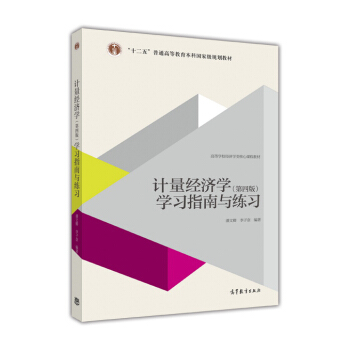

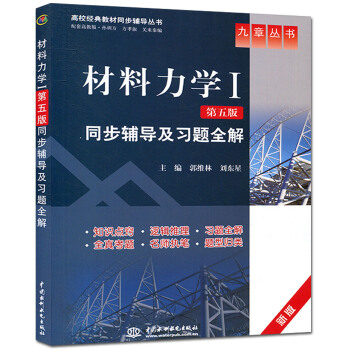

![光学原理――光的传播、干涉和衍射的电磁理论(第7版) [Principles of Optics: Electromagnetic Theory of Pr] pdf epub mobi 电子书 下载](https://pic.qciss.net/11962070/577a1c4dNdee7f7ab.jpg)



